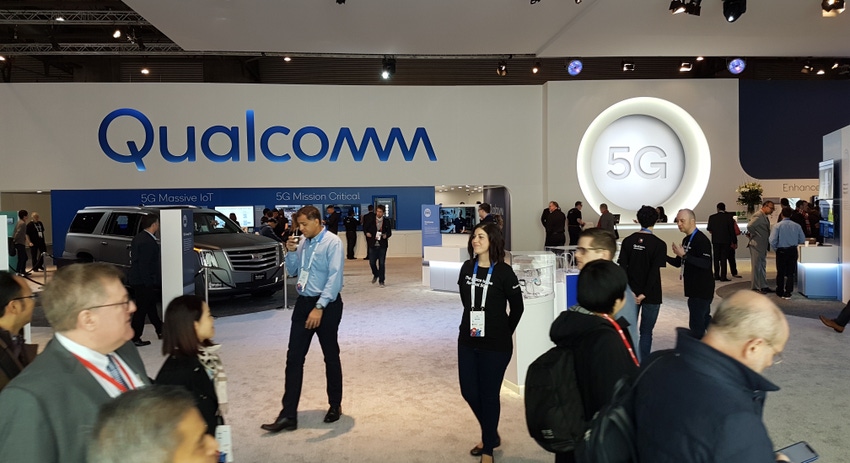Having extended the deadline many times Qualcomm has finally bailed on its bid to acquire NXP following China’s refusal to approve it.
July 26, 2018

Having extended the deadline many times Qualcomm has finally bailed on its bid to acquire NXP following China’s refusal to approve it.
“We intend to terminate our purchase agreement to acquire NXP when the agreement expires at the end of the day today, pending any new material developments,” said Qualcomm CEO Steve Mollenkopf, while announcing Qualcomm’s Q2 2018 numbers. “We reported results significantly above our prior expectations for our fiscal third quarter, driven by solid execution across the company, including very strong results in our licensing business.”
At time of writing Qualcomm’s shares were up 4%, but how much of that – one way or the other – was due to the NXP announcement is unclear. Since the State Administration for Market Regulation in China (SAMR) has been sitting on the deal for months, it’s fair to assume the collapse was priced in a fair bit. Nonetheless the $2 billion termination fee Qualcomm has to shell out to NXP has got to chafe.
Qualcomm has quickly sent out a bunch of material superficially claiming to explore the reasons and consequences for terminating the deal, but actually spouting a bunch of corporate propaganda about how great everything is regardless, and how it’s going to kick ass in 5G and IoT.
It will have to do so without Apple as a customer, it seems. During the earnings call, in his pre-prepared comments, CFO George Davis said “We believe Apple intends to solely use our competitors’ modems rather than our modems in its next iPhone release.” This will be whatever comes out in September, presumably the iPhone XI or maybe even the iPhone Y. The main competitor in question is presumed to be Intel, but that choice could get interesting as we move to 5G because Qualcomm seems to have a significant head start in that area.
Back to the NXP deal, you have to wonder whether the Chinese would have waved it through if US President Trump wasn’t being so combative. The problem with trade wars is that they tend to escalate as they almost demand tit-for-tat behaviour and Trump’s intervention in the ZTE case seems to have been too little, too late for affronted Chinese leaders. They send one of ours to the hospital, we send one of theirs to the morgue, that’s the trade war way.
About the Author(s)
You May Also Like








.png?width=300&auto=webp&quality=80&disable=upscale)


_1.jpg?width=300&auto=webp&quality=80&disable=upscale)


.png?width=800&auto=webp&quality=80&disable=upscale)